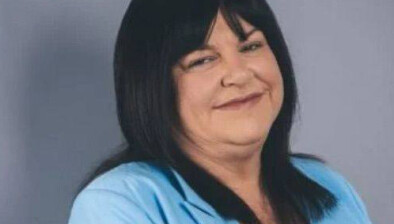Judgment reserved in bid for fresh investigation into man’s 1976 murder

The Court of Appeal has reserved its judgment on the latest legal bid by the family of Séamus Ludlow to compel the State to reinvestigate his 1976 murder by “loyalist extremists”.
Mr Ludlow’s nephew, Thomas Fox, is seeking to have the State establish two commissions of inquiry into the garda investigation of his murder, as recommended by a 2006 Joint Oireachtas Committee.
The recommendation was based on a report into the murder of Mr Ludlow by retired High Court judge Henry Barron, whose principal finding was that the murder was a “random, sectarian killing of a blameless Catholic civilian by loyalist extremists”.
Nobody has ever been charged in connection with the innocent forestry worker’s murder in 1976 and his family say the gardaí failed to pursue an important line of inquiry – that Mr Ludlow was an innocent victim of either loyalist or British forces who mistook him for a senior member of the IRA.
Despite the RUC having identified suspects north of the border, the Garda investigation was suspended after three weeks without explanation and on the basis of what a garda told the family were “orders from Dublin”, the family claimed.
The Oireachtas Committee had said it could not resolve why gardaí did not follow up the RUC information but believed it was because of a direction by a former senior garda. The family argued commissions of inquiry could address such issues.
The State maintains that the murder investigation remains open and commissions of inquiry would be investigations into an investigation, which would not seek to identify the perpetrators.
Lawyers for the State argue that the Barron report named four persons as the suspected perpetrators, but the DPPs on both sides of the border recommended no prosecutions be brought.
Mr Fox, supported by other family members, brought proceedings to the High Court aimed at establishing the two commissions of inquiry.
However, Ms Justice Mary Faherty refused the reliefs sought, holding that there was no right to an inquiry and the courts cannot force the executive to set one up.
In her judgment, Ms Justice Faherty referred to the “human tragedy” caused to the family by the 1976 murder and the “untold hurt and injustice” caused by the “well-documented” and acknowledged failure of gardaí to follow up on information provided to them by the RUC after the murder.
However, she said the refusal to set up commissions was a decision open to the Minister for Justice to make and was not “irrational” or “fundamentally at variance with reason or common sense”, she also held.
Mr Fox appealed that decision to the Court of Appeal yesterday, where judgment was reserved.
His lawyers submitted that the State’s failure to act on the Joint Oireachtas Committee’s recommendation was in breach of Article 2 of the European Convention on Human Rights, concerning the right to life.
Ronan Lavery QC, along with Conan Fegan BL, instructed by Phoenix Law, submitted that the State’s obligations to protect life under Article 2 of the ECHR required that murder investigations be effective, and that this obligation was ongoing.
They argued that the High Court judge’s findings were out of step with recent developments in Article 2 legal frameworks, and failed to take into account the public’s right to the truth.
Counsel for the Minister for Justice, Conor Power SC, appearing with Tim O’Connor BL, began his submissions by stating that the murder of Mr Ludlow was “callous”, and that previous Ministers for Justice had apologised to the Ludlow family.
He said the garda investigation into the killing “remains open”. It was not a “cold case” or “closed” case. If new evidence and material came to light, it could potentially lead to a successful prosecution.
However, Mr Power said the two commissions of investigation that the Ludlows were seeking would not seek to identify the perpetrators of the killing. They would be investigations into investigations, which was not envisaged under Article 2 of the ECHR.
Mr Justice George Birmingham, president of the Court of Appeal, who sat with Mr Justice John Edwards and Mr Justice Patrick McCarthy, said the court would reserve its judgment.











